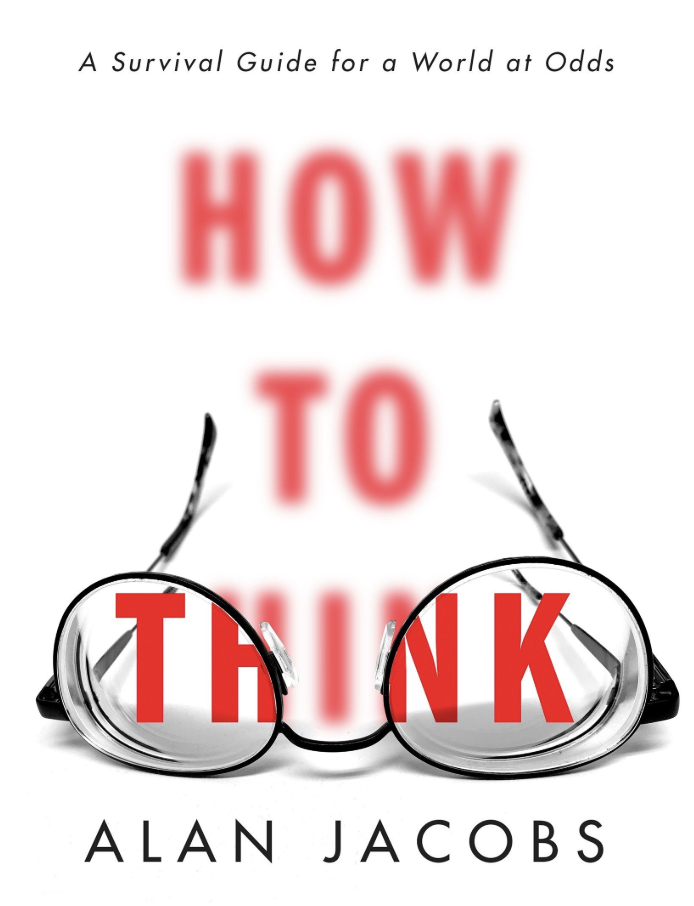In the second chapter of How To Think, Jacobs further develops his insight that thinking is social. Because we want to belong, we must be aware of the extent to which that desire for membership influences our beliefs. We can often sacrifice our willingness to scrutinize our beliefs because doing so may cause us to lose membership in a group that has come to define our identity.

When evaluating our memberships, we should start by looking at the ends our group prefers, so that even if we disagree about means, we can find enough solidarity to help sustain us in those disagreements. Prudence allows us to evaluate when it is time to hold our most cherished beliefs up to the light and when it is time to hold firm to our commitments. As Jacobs points out, the people most likely to resist coercion by true evil are those who are part of a group with deeply held beliefs.
Assigning my freshmen students the book How to Think appears to make my ends for the course quite clear. I am subtly arguing that research and writing are means by which one can think better, and I would prefer if students left the course better able to think, which as I’ve discussed in the two previous posts is not so much about specific beliefs as it is the process by which we reach those beliefs.
Here’s the problem. If someone asked me what my goal for every class was, I would say that in an overarching sense, I’m trying to glorify God and enjoy Him forever and that my particular courses were attempts to foster a desire for those same things in my students (which I could call “discipleship” as shorthand). Here, my means would be the same (reading and writing) my goal for the course would be a kind of thinking, a Christ-honoring form of thinking which would necessarily lead to certain ends and not others.
I build my class around one kind of assignment: summary and analysis. Students get handed an opinion editorial and are asked first to summarize the argument then evaluate whether or not the author has made the argument effectively. This assignment is a means to get them to be able first to clearly state what someone else is arguing and before thinking critically about the way that argument was presented. In the abstract, I would say that it’s possible to have an argument you agree with while still maintaining that the argument is made poorly while it is possible to have an argument that you disagree with while admitting that it’s one made well. But what end does that kind of observation serve?
Beliefs are not enough. The means by which we reach those beliefs and the way we live out those beliefs matter. These are fundamentally spiritual insights. I have to think more rigorously about how to foster discipleship through the process of thinking.
